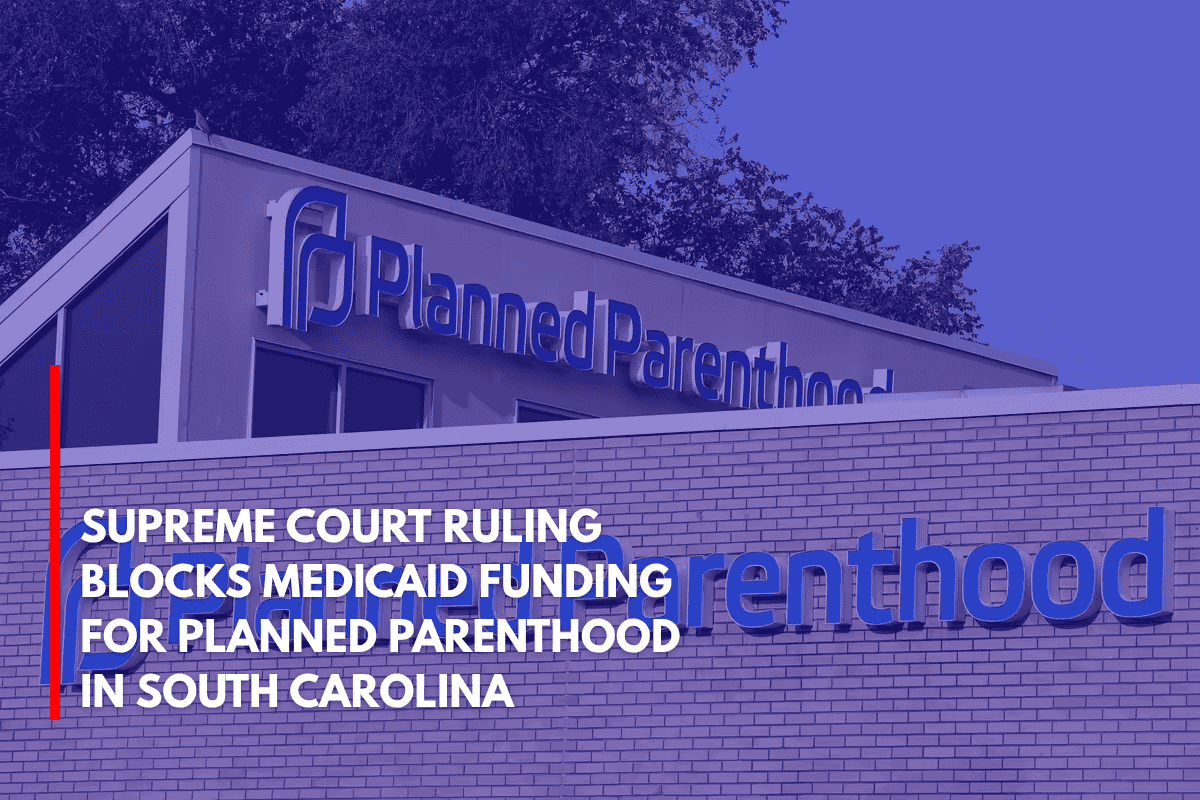The U.S. Supreme Court has ruled that states can block Planned Parenthood from receiving Medicaid funding for essential health services, such as contraception and cancer screenings.
This decision comes as part of a broader political push by conservatives to defund the organization, which has long been a target of anti-abortion activists. The ruling, which splits the court along ideological lines, has significant implications for access to healthcare services for low-income Americans.
The Case and the Ruling
The 6-3 decision handed down on Thursday came after South Carolina Governor Henry McMaster moved to block Medicaid funding for Planned Parenthood in 2018.
The decision centers on a lawsuit filed by Julie Edwards, a Medicaid patient who wanted to continue receiving birth control from Planned Parenthood due to her health risks associated with pregnancy. Edwards sued under a Medicaid provision that allows patients to choose their own qualified provider.
The Supreme Court majority, led by Justice Neil Gorsuch, ruled that patients do not have the right to sue under Medicaid law to enforce their choice of provider. The majority opinion stated that these decisions are more appropriately handled by elected officials, not judges, and patients could appeal through other administrative processes.
Impact on Planned Parenthood
The decision will have a significant impact on Planned Parenthood in South Carolina, where Medicaid funding accounts for a small portion of the organization’s income.
Planned Parenthood South Atlantic officials stated that this ruling could affect approximately 1 million Medicaid recipients in the state, limiting their access to vital health services.
Katherine Farris, the chief medical officer of Planned Parenthood South Atlantic, argued that this decision would strip people of their freedom to choose where they receive care, particularly in financially difficult times. She said, “If they fall on hard financial times, as many are right now, they are fundamentally less free.”
Although Planned Parenthood will continue to provide care, it will no longer bill Medicaid for services, as it is no longer eligible to receive reimbursement from the government.
Political and Legal Reactions
The decision is seen as a victory for Republican officials who have long sought to defund Planned Parenthood. Governor McMaster expressed that the ruling was a “victory” for South Carolina’s values and the sanctity of life. The ruling comes amid a broader effort by conservative states to restrict abortion access and other reproductive healthcare services.
Alexis McGill Johnson, president and CEO of Planned Parenthood Federation of America, warned that this ruling could create a “backdoor abortion ban” in conservative states, where funding cuts could effectively limit access to necessary health services.
The ruling also opens the door for other states to follow South Carolina’s lead in cutting off Medicaid funding to Planned Parenthood.
Meanwhile, France and Germany have called for Iran’s return to dialogue and cooperation with the IAEA. However, Iranian officials appear to be leaning toward a more defiant stance.
France’s defense minister, Sébastien Lecornu, also confirmed that French military forces had intercepted drones launched by Iran toward Israel before the ceasefire. The number of intercepted drones was fewer than 10, but Iran’s missile and drone attacks against Israel have been extensive.
Broader Implications
Medicaid patients, who make up about 25% of the U.S. population, often rely on Medicaid and Planned Parenthood for healthcare services, especially in rural areas where access to medical providers may be limited.
The ability to challenge decisions through patient lawsuits has been an important tool in ensuring that Medicaid recipients can choose their healthcare providers.
The decision raises questions about the future of Medicaid patients’ rights and whether they will still be able to sue for necessary services.
Advocates, including groups like the American Cancer Society, have expressed concerns that this ruling will lead to reduced healthcare access for low-income individuals, particularly in areas with limited medical infrastructure.











Leave a Reply